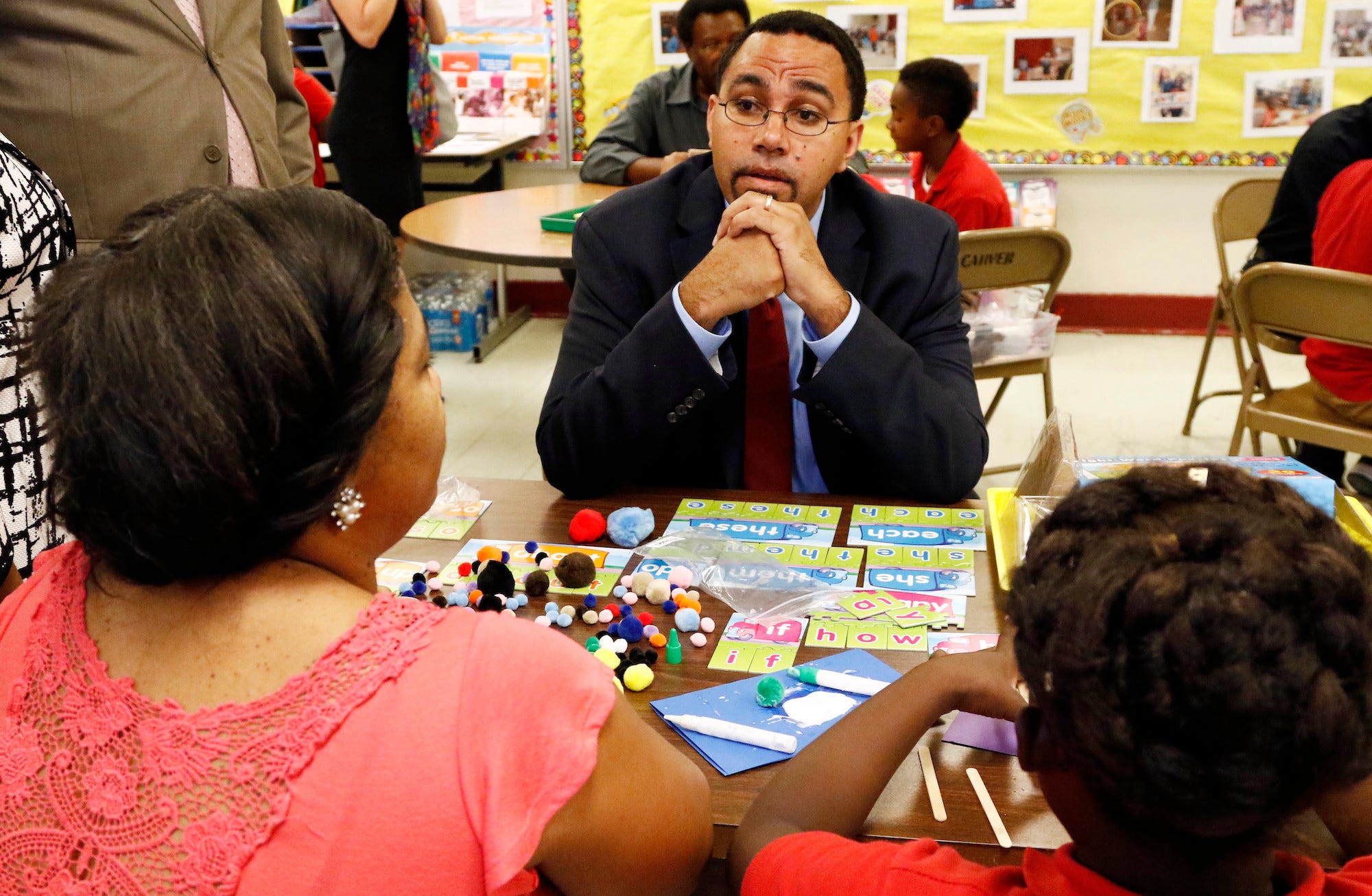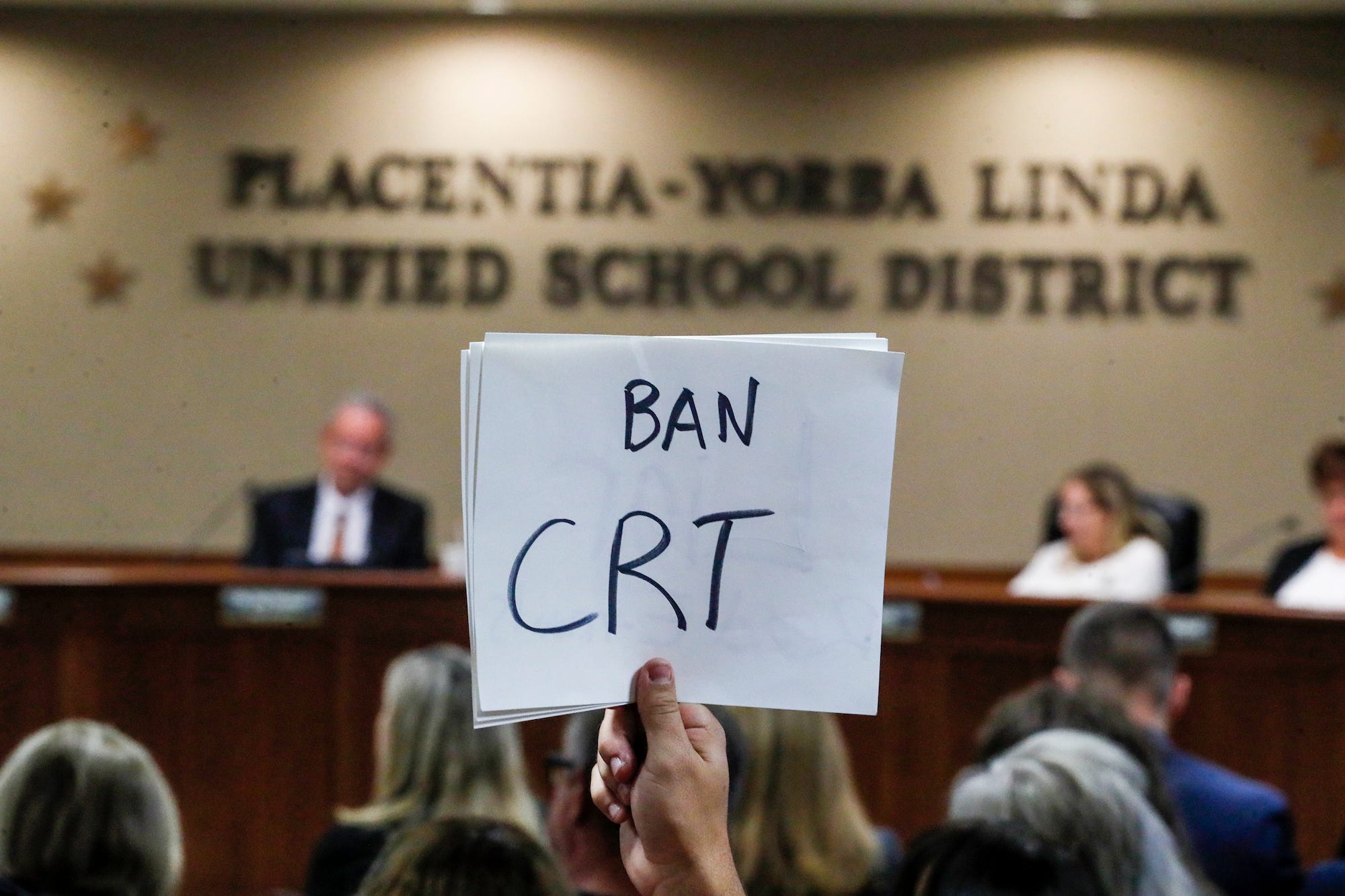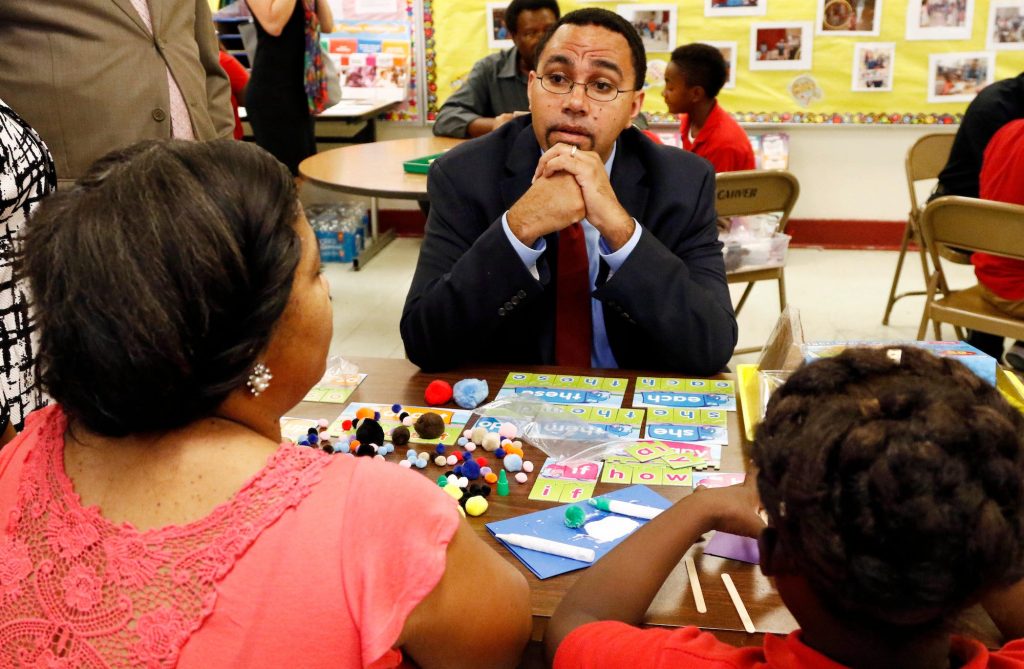
- GOP attacks on race education are "anti-truth" and "anti-teacher," says King.
- The Maryland gubernatorial candidate worries new state laws have a "chilling effect" on teachers.
- "We can hold both ideas," he said of the "ugly" parts of history and of progress.
Republican attacks on K-12 race education feel personal for Maryland gubernatorial candidate John King, not just as a former social studies teacher and education secretary for the first Black president, but also as the descendent of a man who was enslaved.
King, 46, lives in Silver Spring, Maryland, just outside Washington, and about 25 miles from the property where his great grandfather was enslaved. He has visited the cabin where his family lived.
"That's real," he said in an interview with Insider. "That happened. And that history around slavery, around segregation, redlining, certainly influences many of the challenges we have in the country today."
To King, state legislatures that are passing laws to ban K-12 teaching of "critical race theory" — the college-level study of racial bias in laws that Democrats and education leaders say isn't taught in K-12 schools — are "anti-teacher," "anti-truth" and an attempt to delete his own history. Laws in Tennessee and Texas are already having a "chilling effect" on teachers, who are worried about discussing slavery, the Japanese internment, or the civil rights movement, he said.
"I think we have to strongly make the case for a truthful teaching of our history," he said. "And I think we also have to make the case for the country being strong enough to both grapple with ways we've fallen short of our aspirations, and also celebrate the ways we've made progress towards greater equality over time. We can hold both ideas."
King can certainly see both ideas reflected in his own family's personal experience. He said it has been a "fascinating, complex journey," getting to know the direct-line descendants of the family that enslaved his family and who are living on the property today. They have had "thoughtful, complicated" conversations about their shared history, and he now considers them friends.
Standing inside his great-grandfather's cabin, about 30 yards from the main house, has made him aware of "the intense cruelty and intimacy" of slavery. "These were two families living in the same physical space, one owning the other," he said, and that history has profoundly impacted racial equity challenges in this country.
At the same time, King said he also spent time in the cabin contemplating how "profound" it is that his family went in three generations from enslaved to serving in the cabinet of the first Black president as Barack Obama's education secretary.
"That's what I mean about trying to help folks see that, yes, there are these hard, ugly parts of our history, and there's also progress," he said.
Concerns about critical race theory have come up in Maryland, including in August, when Rep. Andy Harris, a Maryland Republican, warned about critical race theory "code words" like "equity" in an education mission statement during a Dorchester County Board of Education meeting. "I think we should teach students to appreciate America," said Harris, a cosponsor of a GOP House resolution opposing CRT teaching in K-12 schools. "Critical race theory teaches them to hate America because it is systemically racist."

'Really just a political tool'
King said Harris' speech "illustrates the degree to which it's really just a political tool," but he said it's also fair to say that not every diversity workshop happening in America is executed perfectly. "We should be thoughtful about how we talk about these issues," he said.
Since serving as Education secretary, King has led The Education Trust, a civil rights education non-profit that focuses on closing opportunity gaps in public education for students of color and from low-income backgrounds. He is one of nine candidates running for the Democratic nomination in the Maryland governor's race. On King's campaign website, he pledges to put educational equity at the forefront of policymaking.
Discussions about critical race theory have come up at campaign meet-and-greets, he said, but often in the context of what role it played in the Virginia gubernatorial race. Gov.-elect Glenn Youngkin pledged to ban it on his first day as governor. He also benefited from his opponent Democrat Terry McAuliffe's debate misstep, when he said parents shouldn't be "telling schools what they should teach."
King said even McAuliffe would say the response wasn't good or correct.
"We desperately need parents as partners in kids' educational experience, and it is critically important for schools to be engaging families and talking with families about teaching and learning and their kids," he said.
The phrase "critical race theory" has been turned into a "toxic slogan," and there isn't much to be gained by keeping the conversation there, he said. It's important now to step back and ask, "What is it really that we're trying to accomplish in schools?"
Would King support teaching K-12 students about critical race theory if he became governor? No, he said.
But he would support a "truthful account" of history and an honest discussion of slavery. He'd want teachers to talk about abolitionists Harriet Tubman and Frederick Douglass and the late Supreme Court Justice Thurgood Marshall — all Marylanders. Teachers should discuss the role redlining played in economic challenges, the racial wealth gap, the civil rights movement, the voting rights act, and the state's Historically Black Colleges and Universities as engines of social and economic opportunity.
"I think most people would agree that we should be teaching a truthful history of slavery," he said. "If we ground our response in the real goal of students having a full understanding of the complexity of American history, that is winnable."

